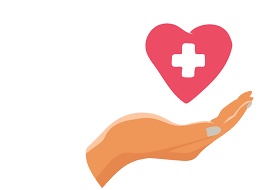Attention Deficit/Hyperactivity Disorder (ADHD) is a neurodevelopmental disorder that affects both children and adults. ADHD sufferers are often faced with sleep disturbances. Sleep disturbances may worsen ADHD symptoms and make it harder to manage daily tasks. This article will explore the relationship between ADHD and sleep, as well as strategies to promote restful nights.
Understanding ADHD and Sleep
ADHD is a disorder characterized by hyperactivity, inattention, and impulsivity. The symptoms of ADHD can vary between adults and children and have a major impact on daily life. The link between ADHD, sleep disorders and other conditions is not fully understood. However, many factors can contribute to sleep disturbances in people with ADHD.
ADHD patients are often plagued by racing thoughts, which make it hard for them to relax before bed. It may be difficult for them to sleep because they have many thoughts, worries or ideas.
Hyperactivity: ADHD may cause hyperactivity, which can lead to restless behavior and fidgety behaviors that disrupt sleep. These behaviors can continue into adulthood, and they can affect your ability to relax or sleep.
Impulsivity: Impulsivity can be a common trait in ADHD. This can cause poor sleep habits such as staying up too late, engaging in stimulating activities before bedtime and making impulsive decisions that interfere with your normal sleep schedule.
Delayed Sleep Phase: According to certain studies, ADHD sufferers have a "delayed sleeping phase", which means that their circadian clocks encourage them to stay up later and sleep for longer. Balancing societal expectations and obligations with the need to sleep can be difficult.
The stimulant drugs may have adverse effects on sleep. These drugs can affect sleep, as they may cause insomnia or change the sleep-wake cycle.
ADHD and Sleep Disturbances
Bidirectionally, sleep disturbances and ADHD are connected. ADHD can make it difficult to sleep, but also worsen ADHD symptoms. This is a vicious circle, in which one problem feeds another. It is therefore vital that people with ADHD address sleep problems.
Insomnia can worsen ADHD. Sleep deprivation may increase hyperactivity, inattention and impulsivity.
People with ADHD may experience emotional dysregulation due to sleep disturbances. Whenever sleep is disrupted, irritability and mood swings are common. It also affects their ability to function in daily life.
Impairment of Cognitive Function. Sleep is essential for memory consolidation and cognitive functions. Sleep deprivation affects memory, concentration and problem-solving abilities. ADHD sufferers will find it difficult to control their symptoms.
Lack of sleep can affect academic and occupational performance. Adults with ADHD may find it hard to keep up in the workplace.
Sleeping with ADHD? These strategies will help you sleep well.
Sleep disturbances are important for ADHD sufferers. It will help them to function better and improve their overall health. There isn't a perfect solution. Various strategies and lifestyle changes can help promote restful sleeping. Take into consideration these strategies to promote restful sleep:
Create a Routine. Regular sleep will improve your sleep quality and help regulate your internal body clock. Even on weekends, wake up and sleep at the same time every day.
Create a relaxing nighttime ritual. Create a relaxing ritual before bed to signal your body that it is time for sleep. You can practice relaxation techniques such as reading or having a warm bath.
Limit Screen Time before Sleeping: Blue light from screens, such as those on smartphones, tablets, and computers, can interfere with the production of melatonin, a hormone that regulates sleep. Limit screen time at least an hour before bedtime.
Avoid sugar and caffeine in the hours leading up to bedtime. Even heavy meals consumed close to bedtime can cause sleep disturbances and discomfort.
Create a sleep-friendly environment. Keep your bedroom dark, cool and quiet. Invest in comfortable pillows and a bed to improve your sleep.
Your doctor will discuss the dosage and timing with you. You may have to adjust the dosage to lessen their impact on your sleep.
Exercise regularly. Physical activity can help improve sleep and manage ADHD symptoms. Avoid intense exercise near bedtime.
Meditation, deep breathing, and progressive muscle relaxation can all help you relax and fall asleep.
Cognitive Behavioral Treatment for Insomnia : CBT helps people with ADHD improve their sleep through addressing negative thoughts and behaviors related to sleep.
Consult a specialist: If your sleep issues persist or are having a major impact on your daily life, you should consult a sleep or mental health specialist. They can treat the underlying issue.
Self-awareness and education: By understanding the relationship between ADHD and sleep, and other factors, individuals can make better decisions and adapt strategies that suit their needs.
ADHD Coaching: People with ADHD can benefit from working with an ADHD coach who will help them manage their sleep and daily activities.
The conclusion to the article is as follows:
Sleep disturbances and ADHD have a close relationship. Sleep issues are crucial for managing ADHD symptoms, and improving overall health. People with ADHD may find it difficult to sleep well. If you want to improve your sleep, make lifestyle changes and get professional help. Understanding the relationship between ADHD and sleep can help those with ADHD get the rest they deserve.
Credits: Norx Pharmausa & Usmeds pharma


No comments yet